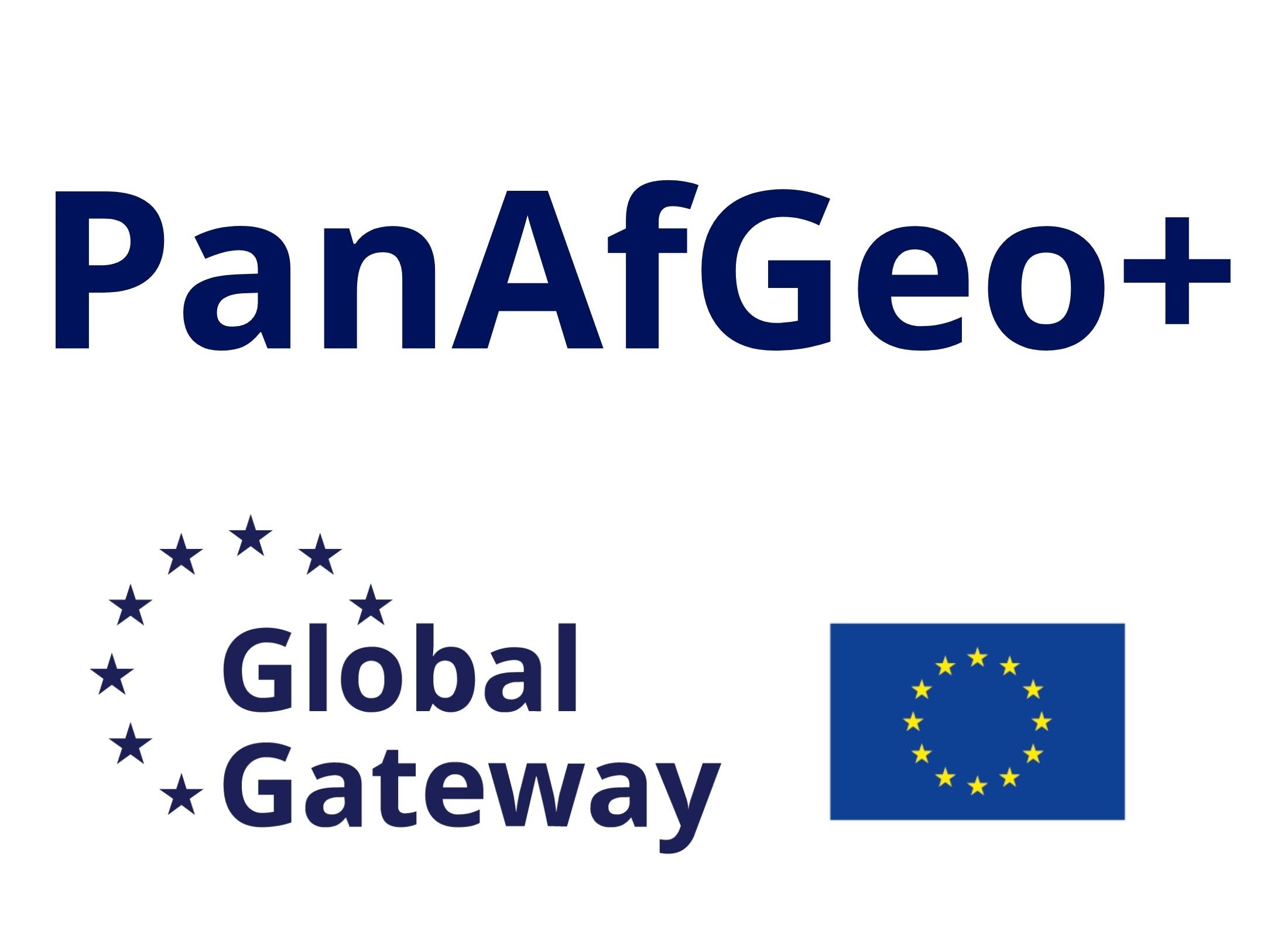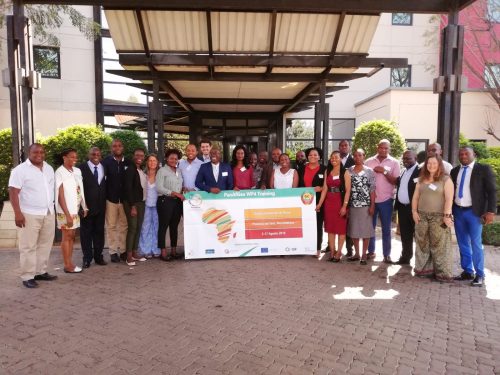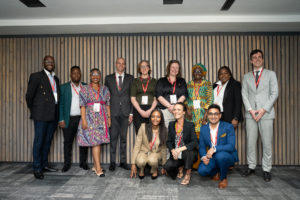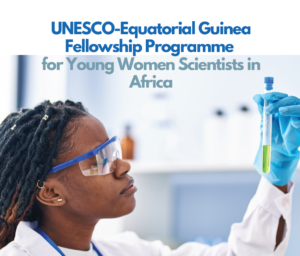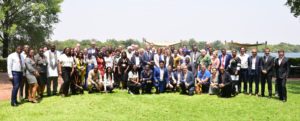« ENVIRONMENTAL MANAGEMENT OF MINES »
Tete, MOZAMBIQUE 6-17 August 2019
PANAFGEO FIRST TRAINING IN PORTUGUESE!
« Environmental Management of Mines », the sixth and last session of the training program as part of the PanAfGeo WP4 held in Tete (Mozambique) from 6th to 17th August 2019.
Twenty professionals from four countries – Angola, Cabo Verde, Mozambique and São Tomé and Príncipe – gathered for the first PanAfGeo training in Portuguese in Tete, Mozambique. The training was organized by the Geological Survey of Sweden (SGU) and the National Laboratory of Energy and Geology of Portugal (LNEG) and hosted by the National Directorate of Geology and Mines (DNGM) as well as the National Institute of Mines (INAMI) of Mozambique. The selected candidates for the training represented several organizational units from geological and mining authorities to which they belong. The selected group have expertise in a broad range of topics and includes among other geologists, environmental specialists, mine inspectors and mining engineers.
The sessions were led by a team of professionals from Portugal and Sweden: Judite Fernandes (LNEG), Maria João Batista (LNEG), Jonathan Hamisi (SGU) and Théo Berthet (SGU).
Seminars on mineral resources and environmental management of mines were combined with group discussions and exercises. The training focused on subjects that are directly relevant for the trainees’ daily work. How is environmental management of mines part of their activities? What are the challenges and opportunities? What legal frameworks, organizations, collaborations and interactions are available or could be developed in the future?
All participants presented their organizations and a review of environmental mine management in their respective countries. They also assessed environmental risks, management practices and organizational challenges. Several examples of ongoing and closed mining projects have been presented. Examples of rehabilitation, mine closures, public participation and stakeholder interaction in mining projects have been discussed. The seminars, group exercises, field visits and discussions have been merged into a plan of action that each participant took as a report message to their respective authorities.
Some of the topics included:
▪ The regional legal framework,
▪ Assessment of the environmental impact of mining activities,
▪ Hydrogeology, water and mines,
▪ Acid Mine Drainage and Waste Management,
▪ Coal and pegmatite mining,
▪ Small-scale mining and the environment,
▪ Rehabilitation and closure of mines,
▪ Public participation, sustainability and post-mining projects.
After the seminars, field visits took participants to the Moatize coal mine in the western outskirt of Tete. Moatize coal mine is a large-scale mining project with a yearly output of about 2% of the world coking coal production, a commodity used in steelmaking. We are thanking Vale, and especially Rogerio Sendela, for organizing a three-days visit including lectures about their mining activities, mine facilities visit and community project presentations. On site, participants had the opportunity to be introduced to Vale waste and environmental management plan and share experience in mitigation and prevention of risks related to coal mining in the region. Furthermore, participants had the opportunity to visit the community and resettlement project in the area of Cateme which is located on Vale’s mining license. The group also visited a small scale and artisanal gold mine and discussed the environmental impact of such activity and how a geological survey can provide support for such activity in order to prevent and mitigate related environmental impact.
One of the most important outcomes of the training is the building of a new professional network between the trainees and the trainers. The interactions and sharing of experiences from mining activities, environmental management and governance principles between countries was extremely valuable. The contacts established between the participants and trainers constitute an important and long-lasting contribution of the training and will also benefit the other work packages of PanAfGeo for future training in Portuguese. Several forms of Internet-based communication are already active between participants and trainers. Some basic tools and methods for field work and documentation have been provided to participants.
The training was organised by Mats Thörnelöf, Project Manager (SGU), Jonathan Hamisi, Deputy project Manager (SGU), Théo Berthet (SGU), Judite Fernandes (LNEG), Maria João Batista (LNEGl) and Luís Plácido Martins (LNEG). The successful preparation of the training session was made possible through the work of Elias Daudi, General Director of the DNGM, who also attended the opening ceremony and Grácio Cune, Provincial director of DNGM. The Environmental Management of Mines Training Program is co-funded by the Intergovernmental Forum on Mining, Minerals and Sustainable Development (IGF).
